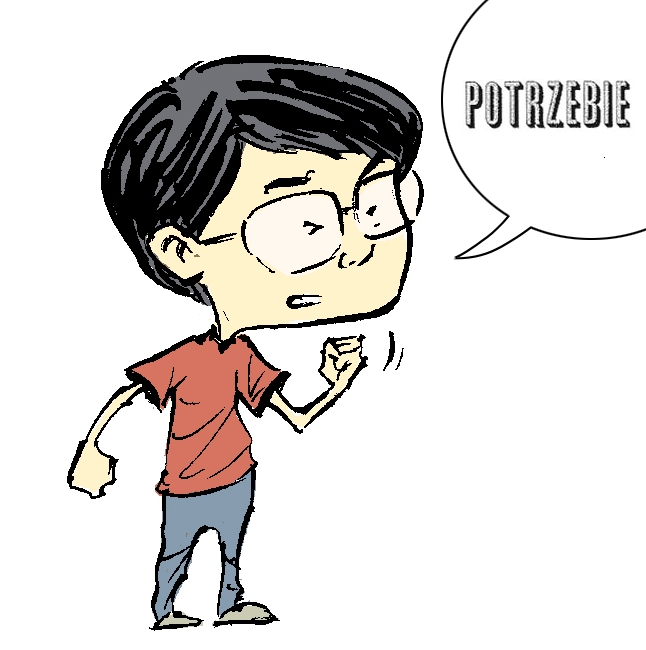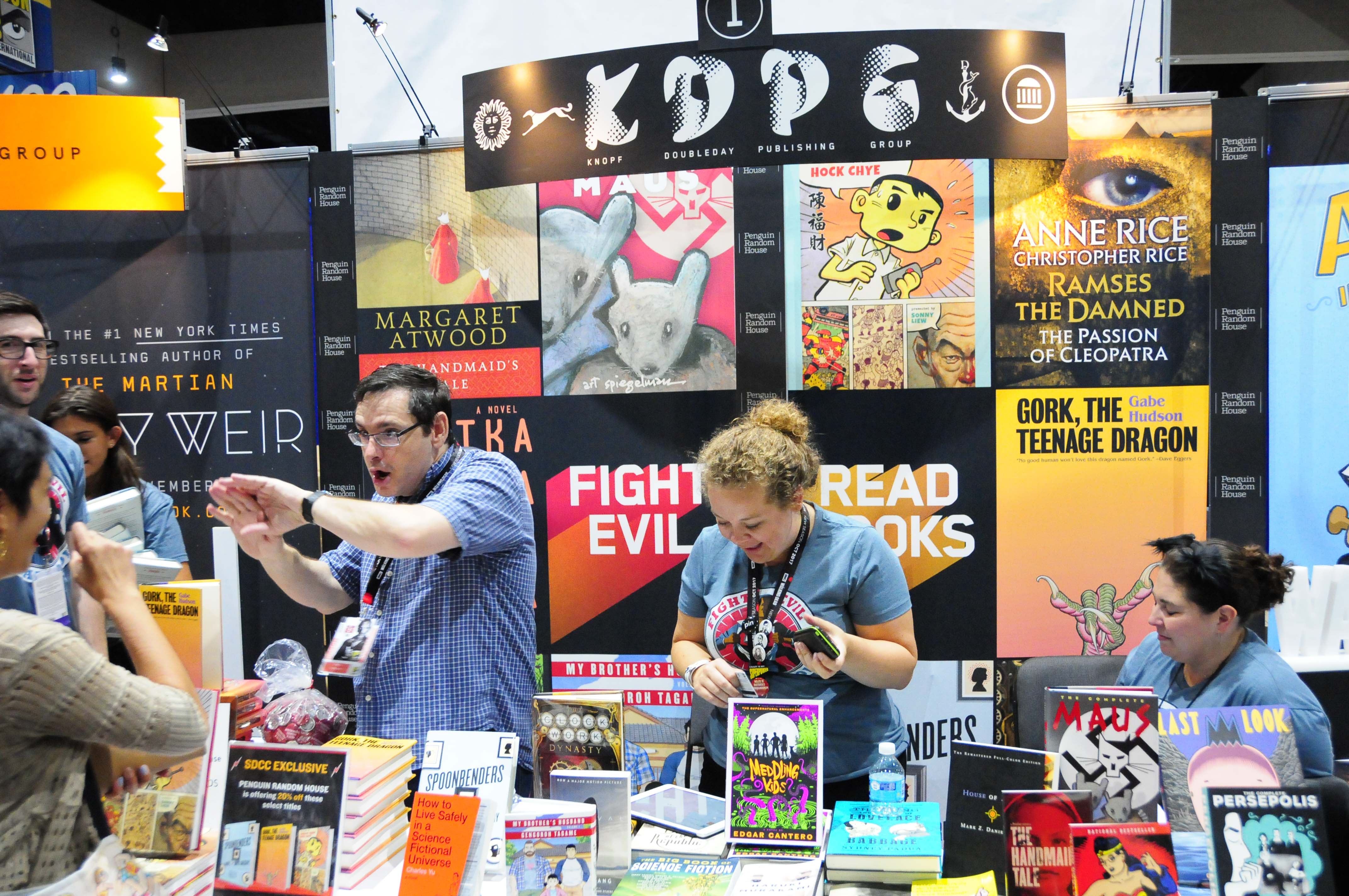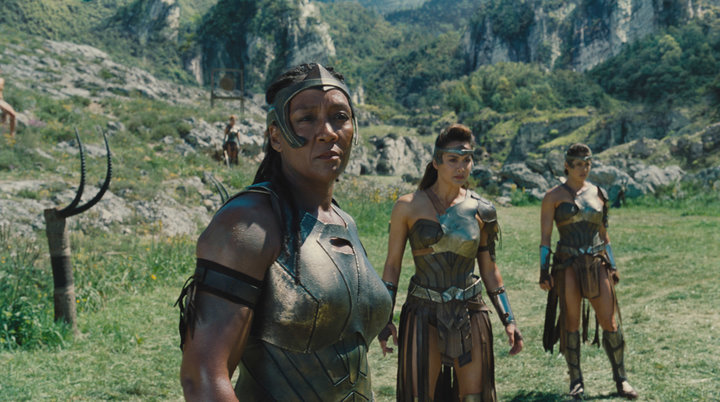
When The Art of Charlie Chan Hock Chye was released last June, the book became such an instant classic and media darling that it ended 2016 at the top of many critics’ lists, including The Washington Post, NPR, New Pork Post and the Economist. The book was nominated for six Eisner Awards this year and took home three, including Best Writer/Artist.
The Beat caught up with the soft-spoken artist on the day after his big haul to talk about the book and what the win means for its future in Singapore.
Comics Beat (CB): Congratulations on your win at the Eisners last night.
Sonny Liew (LW): Thank you.
CB: That must be a validating feeling for you.
LW: Yeah, some degree. It’s something that I’ve dreamt about for a long time.
CB: Did you realize how big a deal this book would become?
LW: Not really. Every time you do a book you hope it’ll do well. Based on past experience, I wouldn’t expect it to do as well as it has.
CB: How did you come up with the idea of doing a comic within a comic or a story within a story?
LW: The current idea came when I was reading books about comics history, and I realized that most of the essays about—let’s say Robert Crumb, for example—were actually embracing the background from where they came from…the 60s counterculture revolution, for example. So to explain comics history you’d explain real world history as well, and I thought I could turn it on its head and tell a history of Singapore through a comics history, except that I would do it by a fictional comics history. That was the central concept of the book.
CB: It kind of reminds me of Scott McCloud.
SL: Yes. Initially the book was supposed to be essays with extracts of comics, but I realized quite early on that I’d never actually read those kind of books that I own in a leaner fashion. They were, by definition, coffee table books that you would zip in and out of whenever you wanted to.
In order to persuade a reader to read it from page one to 300 I thought I could consult one of Scott McCloud’s books because his books are quite theoretical, but by making them comics, he made it easier to read it in a more leaner fashion. So I thought I could adopt this method to make people read this book in the same manner.
CB: How did your interest about Lee Kwan Yew and Lim Chin Siong come about?
LW: Growing up in Singapore, I had been aware of some of the mainstream narrative of our history, but also vaguely aware of so-called revisionist history that was left out of that mainstream narrative. I wanted to learn more about it, and also by learning more about it hopefully retell that story in a comic form to make it more accessible to other readers as well. For me to find out these things I had to read a lot of books and do research, but I thought I could condense it into a comic form that would make it more accessible to everyone else.
CB: How much research was involved to get the story together?
LW: It’s a little hard to quantify because I was working on other books at the same time. While doing research I was working on Shadow Hero with Gene Yang. But I’m guessing it took about six months to a year of research.
CB: How is the book performing in Singapore?
LW: It’s done really well. We are on our six, seventh print right now. I think we’ve sold maybe 15,000 copies in Singapore alone. For a country of that size and a book of this nature I think it has been doing really well.
CB: There was some government brouhaha about it?
LW: That’s right.
CB: Has that calmed down yet, or are they okay with it?
LW: Umm, it’s kind of complicated. They withdrew the grant but they didn’t ban the book, so it’s not a really hardline approach, but they don’t support the book exactly either. At this time, they told me they could support me as an artist, but they can’t support the book in itself. So they’ll give me grants to do other things, but they won’t especially support this book, let’s say for exhibitions, or, umm…to me, it feels kind of like a schizo approach. They try to draw a line to create the book and the book itself. I don’t think that the tension is quite resolved yet. I think it’s going to be an ongoing thing. The more recognition or attention the book gains, international market or within Singapore, I think, it would create pressures for them to resolve this tension, but I’m still not sure how it’s going to be resolved yet.
CB: You don’t think winning an Eisner helped in any way?
LW: I think it will increase the pressure to have a dialogue. When they first withdrew the grant, they didn’t actually make explicit what the reasons were. They just sent us the guidelines to have and that this book potentially undermines the legitimacy, supposedly, of the government and left it at that. And it’s kind of in tune with what a government does when they are against something. They don’t actually explain it; they just tell you what the decision is. So At this point in time, I still don’t know what the official line is, what the official reaction to the Eisners are. I think it might take a while before it’s kind of clear.
CB: Seeing as you live in Singpore, do you ever wonder what would have happened if you lived in the U.S. and published the same title?
LW: It’s clearly part of the reason why the book has done well is that we initially had a lot of attention because of the grant withdrawal. That generated a lot of social media attention. First signing at Kinokuniya…that’s a huge turnout for the book, and we sold the first print run in like a week, so I mean the subsequent success has been partly due to what I’ve done as well. I can’t deny that first attention was due to the grant withdrawal. It’s really hard to go back and say if it’s America and it was released here would it have the same impact…those are things you can’t really go back and predict, I think.
CB: Fair enough.
LW: Yeah?
CB: In the book, Charlie’s earliest successes have a lot to do with a robot story in the style of a Tezuka. You also did a robot story in Malinky Robot.
LW: Kind of a robot story, but not exactly.
CB: Is it something about robots that draws you? Is there any parallel between the two or it just happened that way?
LW: I think the idea, especially giant robots like Gigantor, Transformers, it’s got an inherent appeal to kids and to especially to boys growing up. You can have a robot be your hero or be your companion, so I think that’s a trope that has a lot of resonance with me and I think for a lot of readers who grew up reading all those comics, even Astroboy or spider robots. Especially in Charlie Chan it was just a way of kind of bringing that resonance to the book, to suggest that this links with Tezuka, Tetsujin, all the other giant robot stories of the time.
CB: Your work has run the gamut of genres…from superhero to graphic adaptations of Jane Austen classics and then to Asian historical and cultural themes. Which genres do you prefer?
LW: Given a choice I would like to try all genres just to get a feel of it and visit the tropes in each of them. But when I first started doing comics in the U.S. my first book was My Faith in Frankie with Mike Carey, and that had a female protagonist. Then Wonderland had a female protagonist with Tommy Kovac. Maybe to some extent I got pigeonholed a little bit. Regifted also had a female protagonist. For a while I thought I was pigeonholed into doing comics which featured female characters, and my style is not mainstream level senses. It wasn’t till Shadow Hero that I got a chance to do a superhero comic for the first time, and with Charlie Chan it’s also…to some degree it’s been a personal choice to try to move out of being pigeonholed, to show that I can do other things. I hope moving forward I’ll get more chances to do things, as wide a variety as possible.
CB: There is this running theme that once an artist who draws for other writers do their own stories that it’s hard to go back. Is that true for you?
LW: It’s harder to go back, I think. When you do your own book, it’s your own concerns, your own fears and interests in the book, whereas if we’re doing just art, you are trying to translate somebody else’s ideas to visual form. At the same I’m still realistic about the career, that you have to balance commercial and the personal work. Doing stuff for DC and Marvel, you’re still working for other writers. I’m still at a stage where my personal work is still not quite commercial enough to give up that stream of my career. I’ll probably continue to do that for a while and try my best to show that I can do more writing and drawing at the same time
CB: I have to ask…I have Asian parents, and you’re Asian. How do they feel about you being in this kind of work?
LW: In Singapore it’s even worse because we still don’t have a real industry whereas in the U.S., you can say at least look at Marvel, look at DC. People are doing comics. When I first started doing comics, for a long time they were always concerned. They were asking ‘What are you doing next?’, ‘Are you making enough money?’, ‘What are your long term plans?’. Maybe the last two or three years, it’s reached a certain point where they feel a little more confident in what I am doing. I think that’s natural because for most us, our careers require a certain amount of time to build up to, to get networks, readership, just the craft of it, to learn the skills to do the job properly. It’s been gradual, but I think I’m at the stage now where I feel more confident in what I am doing, but, for sure, initially they were worried where I would end up.
CB: Which artists have influenced your work the most?
LW: Off the top of my head I would say Bill Waterson, Christopher and Daniel Clowes are the top three, but if you give me some time I’m sure I could come up with a really long list of names that have influenced me <laughing>.
CB: I can definitely see Waterson in your work.
LW: The last two is mainly more for how they push the language all the time with every new book they do. It surprises you with something you’ve never seen before in comics.
CB: What’s next on your project list?
LW: I’m doing research on a new book. I tell people it’s about capitalism, but I’ve not got a handle yet on what the structure will or what the real form of the book will be like yet…it’s still really base. In the meantime I’m talking to DC, Boom and IDW about various projects.
CB: Congratulations on your Eisner win and good luck with your new book.
LW: Thank you, thank you.






